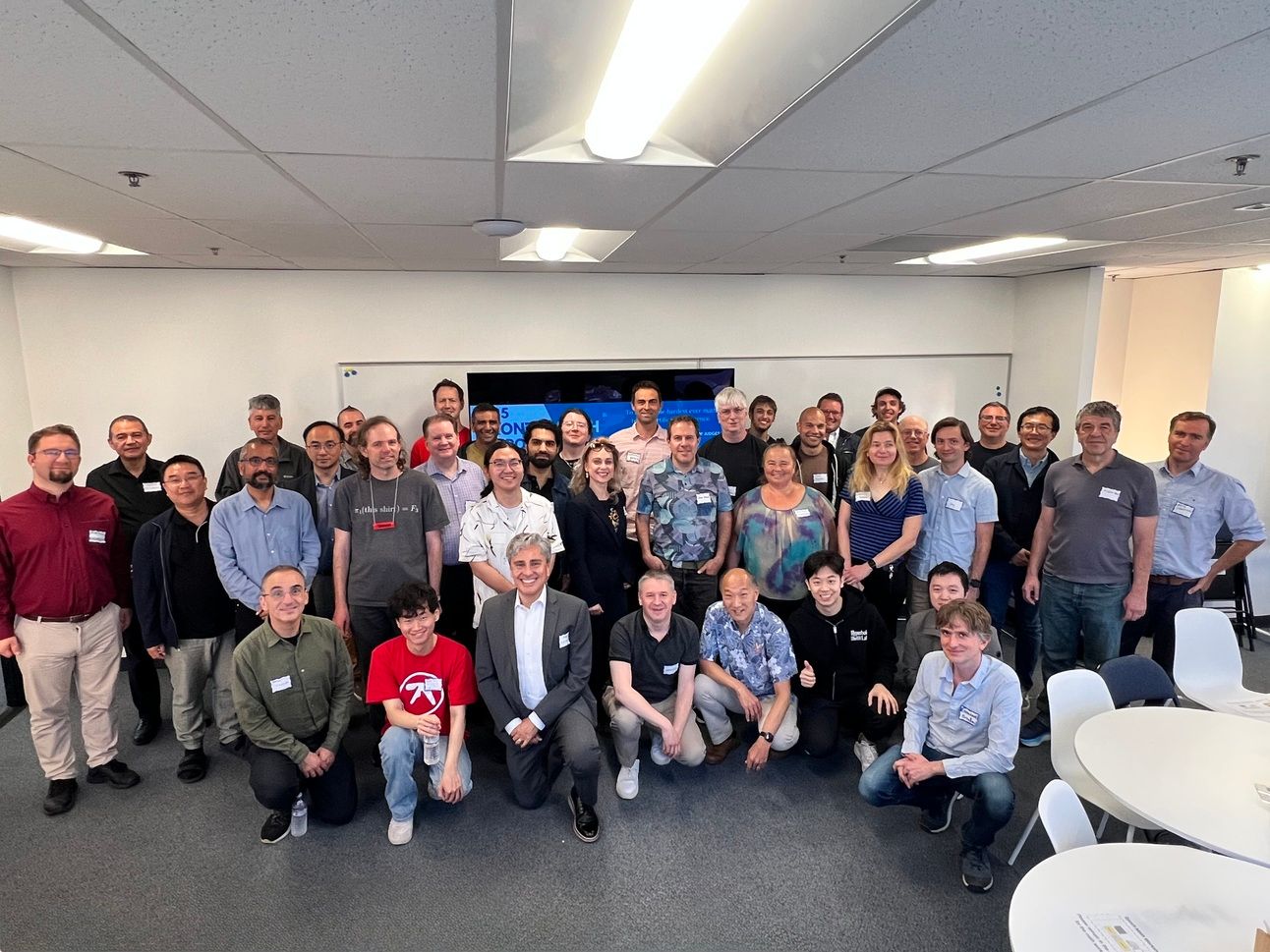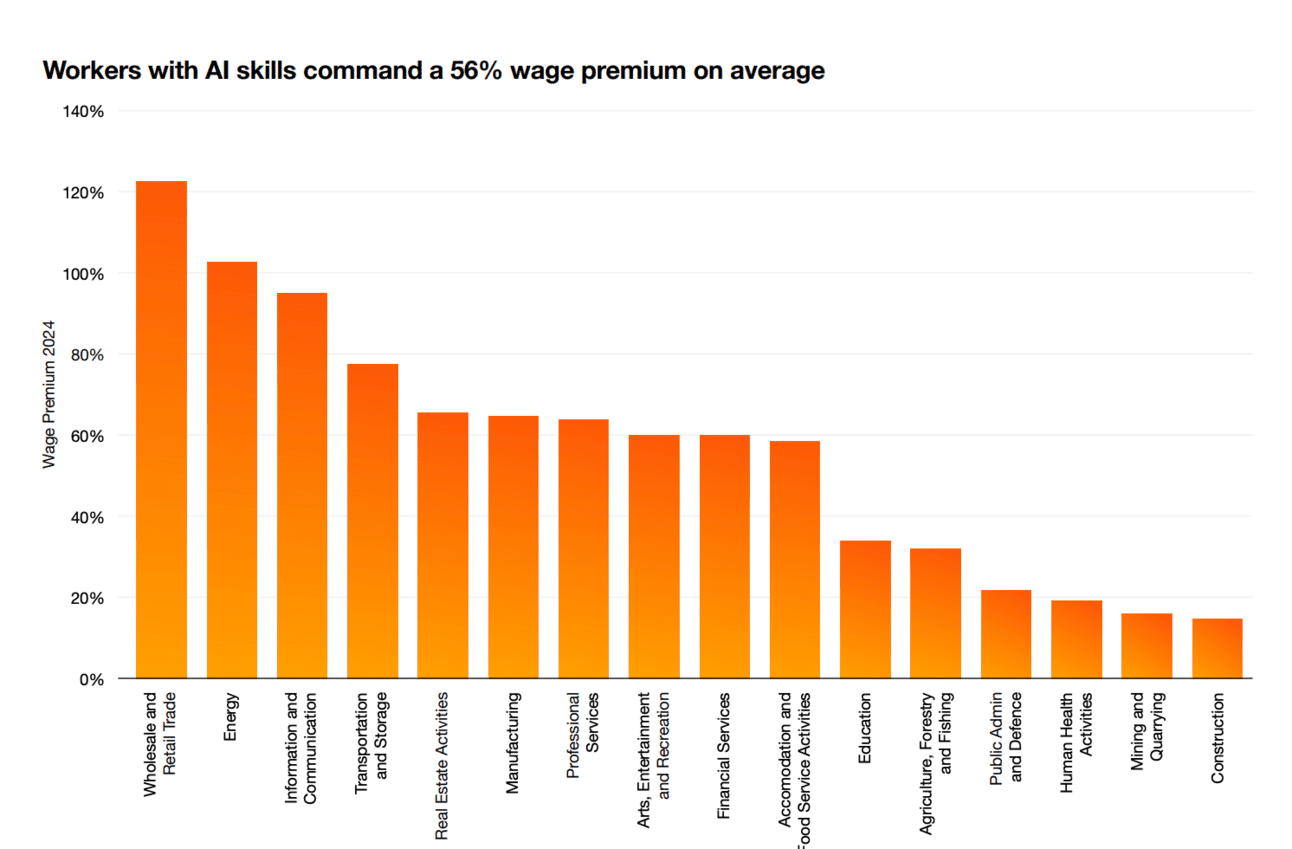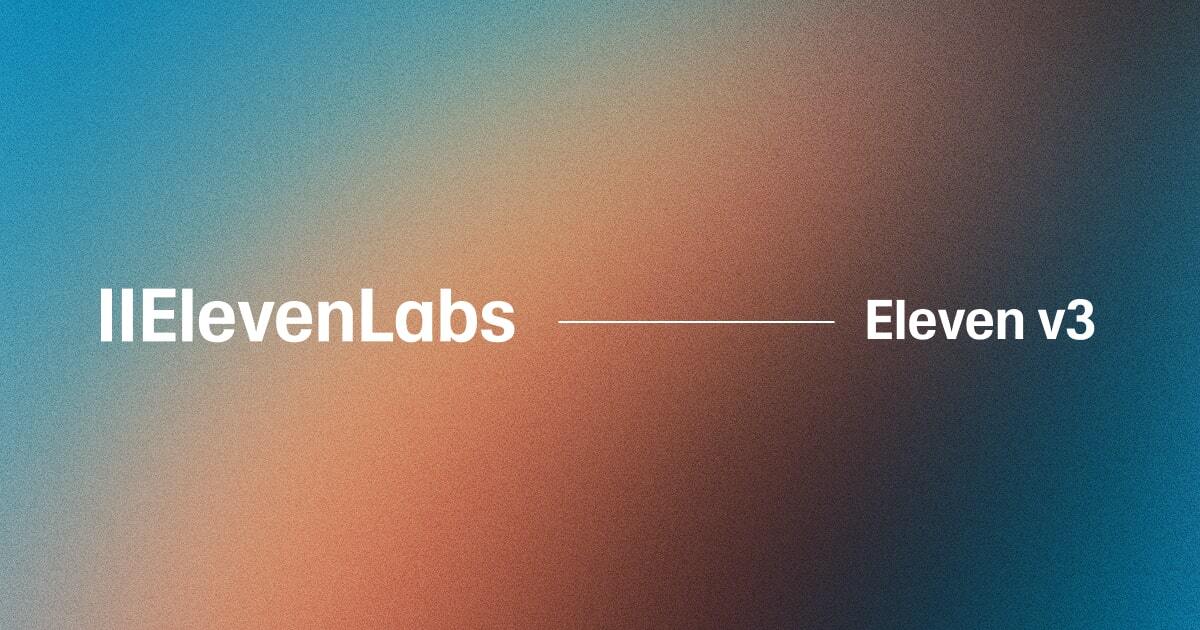Good morning. It’s Monday, June 9th.
On this day in tech history: In 1986, the Pittsburgh Supercomputer Center was established to support the National Science Foundation's NSFNET, a precursor to the modern Internet. It linked five supercomputer centers across universities, advancing computational research and network infrastructure.
In today’s email:
ChatGPT Gets a Voice Upgrade
Inside the Secret Meeting Where Mathematicians Try to Outsmart AI
AI-Exposed Industries See 3x Revenue Growth
5 New AI Tools
Latest AI Research Papers
You read. We listen. Let us know what you think by replying to this email.
Looking for unbiased, fact-based news? Join 1440 today.
Join over 4 million Americans who start their day with 1440 – your daily digest for unbiased, fact-centric news. From politics to sports, we cover it all by analyzing over 100 sources. Our concise, 5-minute read lands in your inbox each morning at no cost. Experience news without the noise; let 1440 help you make up your own mind. Sign up now and invite your friends and family to be part of the informed.

Today’s trending AI news stories
ChatGPT Gets a Voice Upgrade Amid Wrestling Privacy Crackdowns, Dark AI Exploits

Summary of ChatGPT advanced voice mode updates. Image via MindBranches
OpenAI has upgraded ChatGPT’s Advanced Voice Mode, giving it a more natural, expressive tone complete with nuanced pacing, inflection, and even a dash of empathy or sarcasm. Now able to translate conversations in real time across multiple languages until told to stop, ChatGPT edges closer to the ambient AI ideal, especially with its new live visual commentary feature when the camera’s on. Still, occasional audio glitches like unexpected pitch shifts remind us this polished assistant is a work in progress.
Behind the scenes, OpenAI is grappling with a legal minefield that complicates its long-held promise of privacy. A federal court has ordered the company to keep deleted and temporary ChatGPT sessions tied to a copyright dispute with The New York Times. This affects most users except those on Enterprise, Education, or Zero Data Retention plans, prompting CEO Sam Altman to call for “AI privilege,” a digital confidentiality shield not yet enshrined in law. The ruling threatens to unsettle privacy norms and forces teams relying on ephemeral chat to rethink data governance—because “deleted” no longer means “gone.”
OpenAI deliberately sidesteps the question of whether ChatGPT is truly conscious, drawing a sharp line between actual sentience and the illusion of awareness. When ChatGPT replies “I’m fine,” it’s less a glimpse of inner life and more a conversational prop designed for clarity. The company discourages personification but knows users can still get emotionally attached, a tricky balance as it develops what it calls a “digital super assistant” without blurring human and machine boundaries.
This tension comes into sharp focus as more people turn to ChatGPT for personal advice. Its confident, authoritative voice can inadvertently reinforce biases or delusions, sometimes fueling avoidable breakups when critical context like mental health conditions is missing. The company has also flagged multiple cross-border campaigns exploiting its tools for scams and political meddling, from European election interference to Asian and US influence operations, though it rates their actual impact as limited. Read more.
Inside the Secret Meeting Where Mathematicians Struggled to Outsmart AI
At a discreet gathering in Berkeley, 30 top mathematicians went head-to-head with o4-mini, OpenAI’s reasoning large language model (LLM), expecting to expose its limits. Instead, they found themselves outpaced. Trained on specialized datasets with focused human feedback, o4-mini demonstrated an uncanny ability to solve problems that typically stump seasoned academics, delivering answers in minutes that would take humans months.

Image via: Jasper on 𝕏
The meeting involved crafting questions designed to trip up the AI, each unsolved problem earning its creator $7,500. Yet, the bot sliced through many Ph.D.-level puzzles with ease, even showing a cheeky flair in its responses. While the researchers managed to identify a handful of questions that still elude the model, the session highlighted a shifting dynamic: mathematicians may soon act less like solo problem solvers and more like mentors to AI collaborators. As one participant put it, the bot “masters proof by intimidation,” confidently presenting solutions that can unsettle even experts. Read more.
AI-Exposed Industries See 3x Revenue Growth Per Worker, PwC Finds
PwC’s 2025 Global AI Jobs Barometer presents a detailed picture of AI’s expanding influence across industries, revealing that rather than displacing workers, AI is enhancing their value, even in sectors historically seen as vulnerable to automation, such as mining and agriculture. Analysis of nearly a billion job postings worldwide shows that revenue per employee in AI-exposed industries is growing three times faster than in others, while wages in those sectors rise at double the pace.
The premium for workers with AI skills has surged to 56%, more than twice last year’s level, as the pace of skill evolution in AI-powered roles accelerates by 66%, signaling an urgent imperative for workforce adaptability. Far from a straightforward replacement narrative, these findings illustrate a labor market in flux where AI fluency becomes a critical asset.

Image: PwC
However, this optimistic outlook sits alongside pointed concerns from industry leaders. Palantir CEO Alex Karp warns that absent deliberate, sustained industry measures, AI could spark “deep societal upheavals,” especially through the erosion of entry-level roles that traditionally serve as career entry points. His caution echoes similar forecasts from Anthropic CEO Dario Amodei, who anticipates up to half of white-collar entry-level jobs vanishing under AI’s advance, and Nvidia CEO Jensen Huang, who highlights the risk that workers may lose out not to automation itself but to colleagues who deploy AI more effectively. Adding to the discourse, former OpenAI chief scientist Ilya Sutskever envisions AI reaching superintelligence within a decade, potentially surpassing all human cognitive skills and driving automation and economic acceleration at unprecedented speeds. Read more.


5 new AI-powered tools from around the web

arXiv is a free online library where researchers share pre-publication papers.


Thank you for reading today’s edition.

Your feedback is valuable. Respond to this email and tell us how you think we could add more value to this newsletter.
Interested in reaching smart readers like you? To become an AI Breakfast sponsor, reply to this email or DM us on 𝕏!







.avif)
